by Maina Mwaura, Urban Faith Contributing Writer | Aug 25, 2023 | Commentary, Faith & Work, Headline News |
 As I’msitting in my little home office, it can be a challenge to understand that the world is much bigger than where I live in Kennesaw, Georgia. Or even the country that I’m proud to call home America, the same country that my father Moses Mwaura migrated to. Yet God calls for us to not only recognize that we’re part of a world representing over seven billion people, but at the same time to love the world. In fact, I would even venture to say that Isaiah 37:16 makes it clear that God made and sees the entire world, which is unlike me. God doesn’t see just one part of the world which is why as Christ Followers we should be praying for our world daily.
As I’msitting in my little home office, it can be a challenge to understand that the world is much bigger than where I live in Kennesaw, Georgia. Or even the country that I’m proud to call home America, the same country that my father Moses Mwaura migrated to. Yet God calls for us to not only recognize that we’re part of a world representing over seven billion people, but at the same time to love the world. In fact, I would even venture to say that Isaiah 37:16 makes it clear that God made and sees the entire world, which is unlike me. God doesn’t see just one part of the world which is why as Christ Followers we should be praying for our world daily.
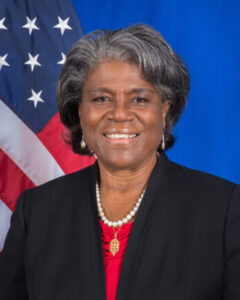 Recently on a rare Thursday Evening when many people were done working for the day, I had the privilege of spending a few minutes with United States Ambassador to the United Nations, Linda Thomas Greenfield. During my amazing time with her I learned so much about our world and the reasons that we should see ourselves not only as citizens of America but worldwide citizens. We have been placed here by a God who made and oversees the world. He desires for us to do our part, which in part is praying for the world around us.
Recently on a rare Thursday Evening when many people were done working for the day, I had the privilege of spending a few minutes with United States Ambassador to the United Nations, Linda Thomas Greenfield. During my amazing time with her I learned so much about our world and the reasons that we should see ourselves not only as citizens of America but worldwide citizens. We have been placed here by a God who made and oversees the world. He desires for us to do our part, which in part is praying for the world around us.
During my time with Ambassador Greenfield, she stressed that although she loves the world that the one part of the world that she is concerned about is Haiti. As a man who has lived in Florida, I understand her sentiments. Haiti is one of the poorest countries in the world and the rate of famine that is plaguing that part of the world is alarming. Although the Haitian people are a resourceful and steadfast people they have been through a lot. “Every two to three years, a national disaster seems to hit Haiti which makes it hard for them to bounce back,” according to Ambassador Greenfield. I can still remember that two years ago their President was assassinated while he slept, and it sent the country into turmoil. As citizens of the world, if we’re to make a difference we should listen to the prompting of the spirit. We should find our part of the world that God may want us to get involved with, pray for it, and even go if we can. If we are to do our part in loving the world we must get out of our personal boxes and get involved.

“We prevented famine in Africa by providing $500 million dollars to confront famine.” In hearing Ambassador Greenfield say this, it brought tears to my eyes. I think at times in our world we can get consumed in thinking that our tax dollars aren’t at work. But they are in cases like these. Luke 4:23 is clear that to much is given much is required. Although we have our problems in America, we have been given a lot. Which is why we should be missional as believers. The Great Commission is clear that we have been called to go into all the world which has never been easier than it is today with modern technology. In the world that we live in today, with just a click of a button, we can have conversations with people that our ancestors would have never dreamed of having. Just by having a conversation with someone in another part of the world we could be making the connection of a lifetime and maybe even bringing peace. I believe that great connections always bring peace. “The United Nations has prevented World Wars and is the only institution that we have worldwide.” This may explain why Ambassador Greenfield loves her job and seemed to be upbeat even after most of us have stopped working for the day. “I’m on a mission”, which for ambassador Greenfield began growing up in a small southern town in Louisiana. During our conversation she was on her way to the airport heading home from a trip to New Orleans. “I loved being back in my home state and the hospitality that they show me…I hope I’m making them proud.”
 As citizens of the world my prayer is that when people see us as American Citizens and followers of Jesus, that we are making them proud. We have been given a mandate by God to not only go into all the world, but also tackle issues that the world may be ignoring like climate change. The Ambassador is clear that climate change issues are not only affecting the us globally but also right here in America. To truly see the needs that are around us, we must people that love and recognize the needs around us. The United Nations is in New York City and is known as “The People’s House.” Ambassador Greenfield says, “It’s the peoples house, so anybody can come”. I will be taking her up on that offer because I believe that we are not only called to love our world, but we are also called to participate and engage with the world as world citizens. God doesn’t just love America, but He loves the entire world and there is so much work to be done. It is going to take all of us to pull off the task that He has called for us to do: bringing heaven to earth so that all may experience the kingdom of God.
As citizens of the world my prayer is that when people see us as American Citizens and followers of Jesus, that we are making them proud. We have been given a mandate by God to not only go into all the world, but also tackle issues that the world may be ignoring like climate change. The Ambassador is clear that climate change issues are not only affecting the us globally but also right here in America. To truly see the needs that are around us, we must people that love and recognize the needs around us. The United Nations is in New York City and is known as “The People’s House.” Ambassador Greenfield says, “It’s the peoples house, so anybody can come”. I will be taking her up on that offer because I believe that we are not only called to love our world, but we are also called to participate and engage with the world as world citizens. God doesn’t just love America, but He loves the entire world and there is so much work to be done. It is going to take all of us to pull off the task that He has called for us to do: bringing heaven to earth so that all may experience the kingdom of God.
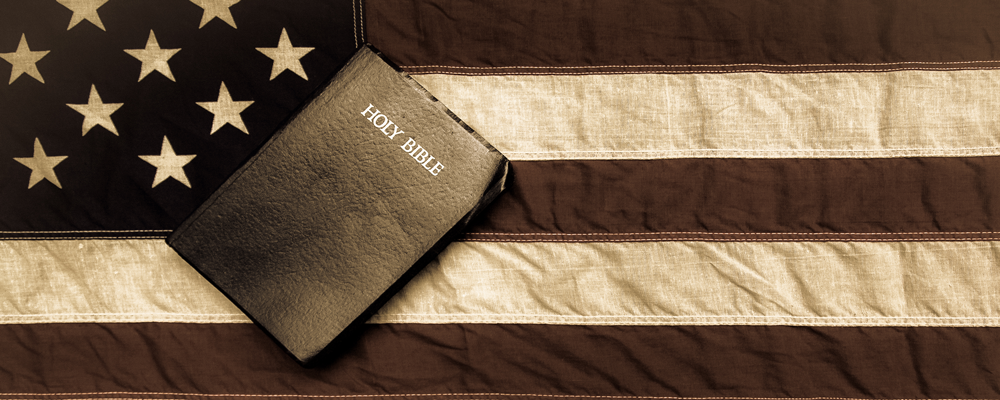
by Edward Ford Jr. | Oct 18, 2022 | Commentary, Headline News, Social Justice |

As a Christian, you may ask yourself at times how to live out your faith in the public sphere. Injustices are occurring in the world around us every day. Because your faith doesn’t allow you to ignore these happenings, you feel a strong desire from within to take productive action. Some people choose to take harmful action but your desire is to take action that heals, that works towards justice and that shows God’s love for humanity. This is what we should aim to do, and my goal is to help you begin to think of ways you can live out your faith while having a positive impact on the world around you.
We are called to live out our faith and have an impact on society. A verse in the scriptures that reiterates this calling is Micah 6:8, which says “He has told you, O man, what is good; and what does the Lord require of you but to do justice, and to love kindness, and to walk humbly with your God?” In this verse Micah points out what God requires of us. We are to do Justice. How are we “to do Justice”? What does that mean for us? Justice comes in different forms. We can do Justice by lending help to the parent who is struggling to put food on the table and is earning just enough to put a roof over their children’s heads. We can lend our help by offering to buy them groceries, maybe filling up their car with gas or connecting them to resources that can give them financial assistance and build their credit. We can do justice by assisting the homeless in our community to find shelter and get them connected to resources that will supply them with food and daily necessities. We can do justice by giving our time, talent and treasure to community organizations that give back to youth, those who are less fortunate and those who are struggling to make it each day.

These are some ways we can do justice on an individual basis. To those who already do such acts regularly, I commend you. Continue this good work. However, there’s also a need for justice on a systemic level within our society. As Christians, we are to follow the example of Christ, and stand beside those who are looked down on and mistreated by society. We have the capability to do justice on a systemic level by advocating for changes within our systems. We should advocate for opportunities for disadvantaged youth. Whether that be through mentorship programs, academic tutoring, pouring more resources into historically underfunded schools and giving families more choices as to where their child can attend. We should advocate for those who are battling unfair sentences in the justice system and creating opportunities for those who have paid their debt to society, in an effort to reduce recidivism rates. We should aim to provide more accessible opportunities for employment, educational opportunities, and programs for financial and civic literacy once they are released. More people should focus on advocating for those struggling with mental health issues and substance abuse. These are initiatives that would exhibit justice as Micah 6:8 led us to do.
Our participation in advocating for policy and systemic change in the public sphere is crucial. Many people believe their voice doesn’t matter, and as a result they don’t bother to vote or advocate for change. I can understand why many feel this way. However, inaction by good hearted people doesn’t get us further towards justice at all. Our government is supposed to be by and for the people. That means we the people of the United States have a voice and can move our government through civic engagement to reform laws and systems to deliver true justice. We can have a great impact especially on a local level. For example, after the terrible deaths of George Floyd and Breonna Taylor many cities across the country were pressed by citizens to take action against not only police brutality but racial injustice on a broad systemic level. That means in education, voting, criminal justice, and especially public health as the COVID-19 pandemic exposed the inequities in our health care system. With much to be addressed U.S. cities and state governments passed their own policies in an attempt to tackle racial injustice. In my home City of Middletown, CT where I am a member of the City Council, we decided to establish a Task Force on Anti-Racism. This Task Force was given the charge to find policy solutions to systemic racism wherever it exists under our jurisdiction. My colleagues and I received numerous emails from residents calling for change. The establishment of the Task Force was a response to residents’ call to action and would be the beginning of furthering justice within our own community. This is one example of how people can make a difference and move our government from stagnation and lip service to action and moving in the right direction. I encourage you to believe that your voice matters. Someone is waiting for you to stand up for the cause of justice.
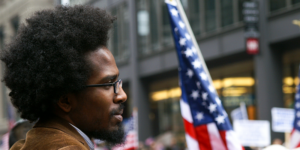
With myriad issues that need to be addressed it’s easy to feel overwhelmed. You don’t have to figure out how you will be an advocate for all of them. I encourage you to look at the example of Christ. He advocated for those who were hungry, sick, outcasts and shamed. He even advocated for you before you were born so that you may have life more abundantly. If you use your time and energy each day advocating for justice, you are advocating for those who are facing current circumstances as well as generations to come. Remember, to do justice is to take action that creates a society where everyone has the opportunities, tools and resources to fulfill their God-given potential. Justice can be restorative instead of further tearing individuals down.
I focused in the previous passages on how we “do justice.” However, those actions are to love kindness and walk humbly as well. When we reach out our hand to help and advocate for others who society would rather turn their backs on, we extend kindness. When we set aside our pride and consider the circumstances of others instead of solely focusing on our own, we begin to walk humbly. I challenge you to think about what issues in your community you can begin to advocate for that would further the cause of justice. What Town Hall meetings can you attend to advocate for justice? What issues can you write your Legislator or Mayor about? If you don’t know who these individuals are, I encourage you to research them. As you begin to walk in the requirements of Micah 6:8, you will be living out your faith in the public sphere.
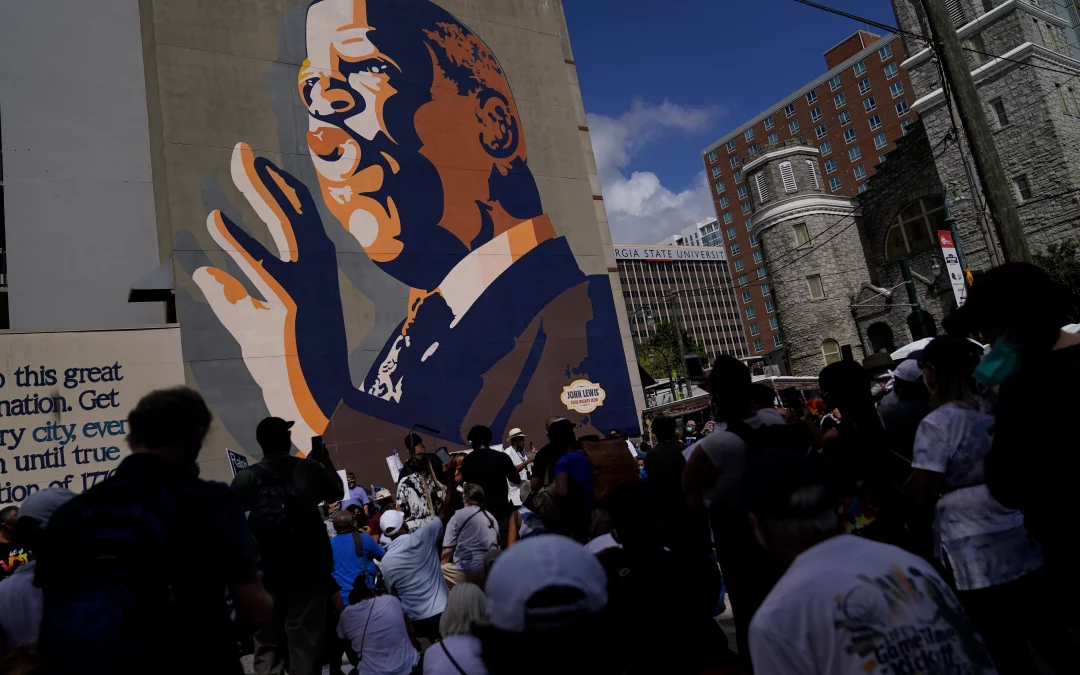
by Bridget Moix | Mar 23, 2022 | Commentary, Headline News, Social Justice |
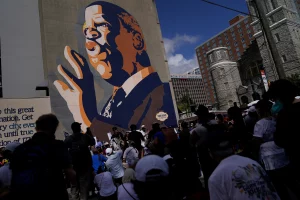
(RNS) — Millions of Texas voters headed to the polls earlier this month in the state’s primary elections — but the democratic system they participated in is markedly different from the recent past.
After last year’s enactment of sweeping voting restrictions by the Texas Statehouse, the primaries served as a first chance to see how damaging these laws would truly be. It’s too soon to get the full picture, but early signs are ominous: Roughly 30% of absentee ballots cast were rejected by election officials, a massive increase from the 2020 general election when fewer than 1% of ballots met the same fate.
Regrettably, this is likely a mere preview of what’s to come for millions of voters across the nation. In 2021, at least 19 states passed 34 laws restricting access to voting. This includes limiting mail balloting, purging voter rolls and reducing poll hours on Election Day. More than 440 bills with provisions that restrict voting access were introduced in 49 states in the 2021 legislative sessions and more are certain to come.
This isn’t just about who will or will not be able to vote in elections. When combined with the toxic partisanship that is dividing our country — and the fact that large portions of our population and numerous elected leaders still cast doubt on the outcome of the 2020 presidential election — an undeniable truth emerges: Our democracy is in deep peril.
As the first registered religious lobbying organization in the United States, we at the Friends Committee on National Legislation believe civic engagement of all people is vital to the democratic life of our country. This begins with the fundamental right to vote. Quakers and other people of faith understand that voting is not just a basic civic right but a moral requirement. At the center of our faith is the unwavering belief in and commitment to the equality and dignity of every human being. Safeguarding the integrity of the voting process for all people and removing, not raising, barriers to the full participation of disenfranchised people in our electoral process is vital to our democracy and our integrity as a nation.
What happened in Texas and in other states violates our democratic principles and our moral conscience. We know voters of color are most directly impacted by efforts to suppress their voice, both historically and today. These communities are also leading the voting rights movement, often at great personal risk. This is only the latest chapter in a long struggle against disenfranchisement of Black and brown communities in the United States. Our faith calls us to help uproot racism and discrimination wherever it exists, including at the ballot box, and to help transform our nation into the beloved community we envision.
This call to protect elections as the bedrock of democracy is not new. Earlier this year, in anticipation of Martin Luther King Day, advocates launched a large scale effort to pass the Freedom to Vote: John R. Lewis Act. This bill would revitalize American democracy by making elections more accessible, secure and transparent, and by ensuring that states do not pass discriminatory laws that restrict access to the ballot box. The effort failed due to a filibuster but has not been abandoned.
Even as Congress rightly focuses on the crisis in Ukraine and the president’s economic agenda, voting rights must remain a top priority for the nation. Currently, efforts to reform the Electoral Count Act of 1887 have real momentum in Congress, with a bipartisan group of senators working to find common ground.
This alone will not end all voter suppression, but it could be a successful vehicle for additional necessary reforms, including amendments to prevent state legislatures from overturning election results, making Election Day a holiday, supporting small-donor financing, instituting gerrymandering reforms or making absentee/vote-by-mail easier.
And despite the failed vote, senators should keep pushing for the Freedom to Vote: John R. Lewis Act. History has taught us the advancement of voting rights has never come quickly or easily — and raising the moral conscience of our nation on these issues is an important role of the faith community.
Quakers believe our democracy can live up to its potential only if the government safeguards the integrity of the voting process and ensures full participation for all people. The push for voting rights is a moral imperative and requires the urgent passage of nationwide voting rights legislation. Advocates and people of faith won’t rest until real action is taken. The Senate shouldn’t either.
(Bridget Moix is the fifth general secretary of the Friends Committee on National Legislation in its 80-year history. She brings with her more than 25 years of work in peacebuilding. Moix also leads two other Quaker organizations: Friends Place on Capitol Hill and the FCNL Education Fund. The views expressed in this commentary do not necessarily reflect those of Religion News Service.)
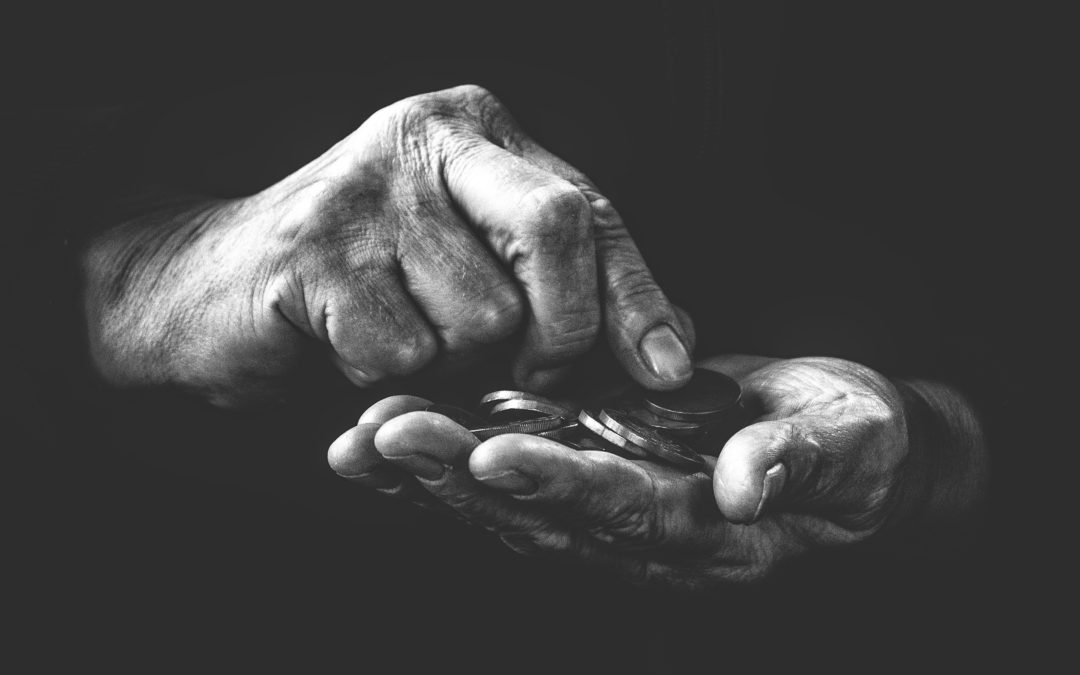
by Diane Randall, RNS | Sep 30, 2021 | Headline News |
(RNS) — The devastating COVID-19 health crisis has become an economic crisis for millions of people — but not for everyone. Last year, families across the United States struggled to put food on the table and balance the responsibilities of childcare and work (assuming they still had a job), but the wealthiest people in our country only got wealthier.
That wealth has not trickled down to families who are struggling to pay their rent, feed their children and create an economically secure quality of life.
The American Rescue Plan — the COVID-19 relief bill passed in March — expanded eligibility for two of the most vital anti-poverty programs we have. It made the Child Tax Credit fully refundable, fixing the gap that excluded families in poverty from receiving the same benefits as their higher-earning counterparts.
It also expanded the Earned Income Tax Credit for workers without children, young workers ages 19-24 and older workers over age 65.
Both adjustments put more money into the pockets of low-income people who were previously ineligible — many of them frontline workers in the pandemic. But these payments will expire on Dec. 31 if Congress does not extend them.
These tax credits work, and, not surprisingly, they are wildly popular. The Child Tax Credit provides a lifeline of economic support to families nationwide who need money to pay for daycare, groceries, utilities, rent, and health care bills that pile up nonstop. This is money being pumped back into local economies coast to coast right now, creating a virtuous economic cycle of helping people in need and local business.
Recently, I spoke with Barbie Izquierdo on the value of programs like these. An advocate and consultant who eloquently gives voice for food justice based on her personal experience, Barbie told me that despite all her work — sometimes full time, sometimes part time, often working more than one job — she “would still come home to an empty fridge.” Her story is shared by hundreds of thousands of families across our country.
To this day, the tax credits are one of the primary barriers keeping Barbie from falling back into poverty as she raises her 14- and 16-year-old children as a single mother. “(They) help you catch up and it alleviates some of the burden of being reminded that you’re poor. They’ve definitely helped me on many occasions,” she explained. “Who knows if I would be here today if I didn’t have that help?”
Since July, millions of families have been receiving Child Tax Credit checks each month. The latest government data indicates that these robust federal programs have put a dent in poverty, which has cascading benefits for children now and in their future — if we can keep these programs in place past the end of the year.
As Congress continues to negotiate additional recovery legislation, we have a historic opportunity to permanently invest in the future of our children. Congress should seize this moment to not only give immediate help to tens of thousands of their constituents but also to strengthen our country’s future.
Specifically, we must adjust the tax code that bends over backward for the extremely wealthy while treating those who struggle every day to afford food and housing as a burden. The more Congress can raise in revenue, the bigger the opportunity we have to address poverty and hunger while investing in our children. It takes real political will to require corporations and the wealthiest among us to pay their fair share. But we expect nothing less.
As a Quaker, my faith and practice encourage me to treat every person as a beloved child of God, which means I am called to do all I can to foster a more equitable, ethical world in which every person can flourish.
I believe Congress wants to help families in need, to ensure a better world for all. This is their opportunity to support the full refundability of the Child Tax Credit. This is the political moment when we can make transformational change in our country.
( Diane Randallis the general secretary of the Friends Committee on National Legislation, a national, nonpartisan Quaker lobby for peace, justice, and the environment. The views expressed in this commentary do not necessarily reflect those of Religion News Service.)
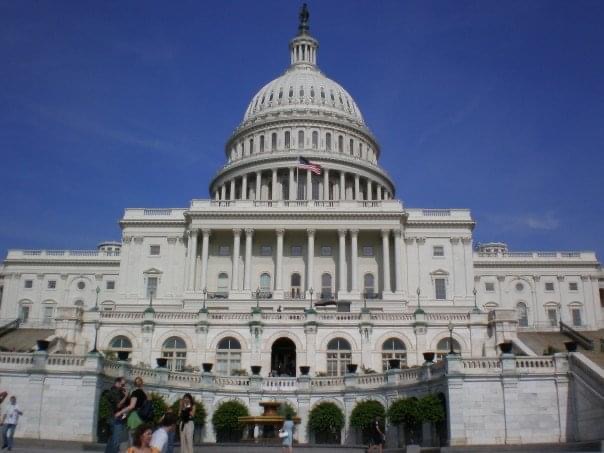
by Edward Ford Jr. | Aug 22, 2021 | Headline News, Social Justice |
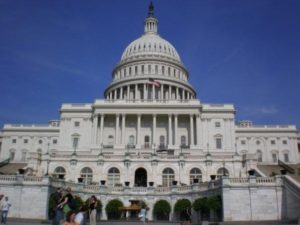 How can policy help us create a society that reflects God’s heart? This is a critical question that Christians from all backgrounds and denominations should be asking ourselves today. To begin answering this question, I’d like to first take a look at a passage from the book of Matthew 25: 34-40. Here Jesus, as usual, says something profound and which applies to our society today. He says this, “Then the King will say to those on His right hand, ‘Come you blessed of My Father, inherit the kingdom prepared for you from the creation of the world. For I was hungry, and you fed me. I was thirsty, and you gave me a drink. I was a stranger and you invited me into your home. I was naked, and you gave me clothing. I was sick, and you cared for me. I was in prison, and you visited me.’ Then these righteous ones will reply, ‘Lord when did we ever see you hungry and feed you? Or thirsty and give you something to drink? Or a stranger and show you hospitality? Or naked and give you clothing? When did we ever see you sick or in prison and visit you?’ And the King will say, ‘I tell you the truth, when you did it to one of the least of these my brothers and sisters, you were doing it to me!’” In this passage, Jesus sets the framework for the justice work that needs to be done within our society. In meeting the needs of “the least of these” we are serving God and people by committing true acts of justice.
How can policy help us create a society that reflects God’s heart? This is a critical question that Christians from all backgrounds and denominations should be asking ourselves today. To begin answering this question, I’d like to first take a look at a passage from the book of Matthew 25: 34-40. Here Jesus, as usual, says something profound and which applies to our society today. He says this, “Then the King will say to those on His right hand, ‘Come you blessed of My Father, inherit the kingdom prepared for you from the creation of the world. For I was hungry, and you fed me. I was thirsty, and you gave me a drink. I was a stranger and you invited me into your home. I was naked, and you gave me clothing. I was sick, and you cared for me. I was in prison, and you visited me.’ Then these righteous ones will reply, ‘Lord when did we ever see you hungry and feed you? Or thirsty and give you something to drink? Or a stranger and show you hospitality? Or naked and give you clothing? When did we ever see you sick or in prison and visit you?’ And the King will say, ‘I tell you the truth, when you did it to one of the least of these my brothers and sisters, you were doing it to me!’” In this passage, Jesus sets the framework for the justice work that needs to be done within our society. In meeting the needs of “the least of these” we are serving God and people by committing true acts of justice.
To state a hard and unfortunate truth, we live in a society that has done much to marginalize and disadvantage many of God’s children. Over the course of American history, we have seen the U.S. government deliberately take legislative and administrative action to oppress entire groups of people in a response to certain cultural attitudes and misguided beliefs. Policies throughout our history have been used to remove Indigenous people from their homes. Jim Crow policies have caused much damage, distress and trauma to the black community and communities of color. I pose the following question to you. If policy can be used to harm, then why can’t it be used to heal? As Christians, we should be pushing our government to enact policies that help “the least of these”.
 When Jesus says in Matthew 25, “I was hungry and you fed me” it should make us think about nutrition policy and how we can eradicate food deserts within our communities. Through policies and programs that will encourage agricultural growth and ensure that disadvantaged communities receive fresh foods, we could feed entire neighborhoods of children and families. We should seek funding and partners in building grocery stores that stock fresh produce in the heart of urban areas. When Jesus says “I was a stranger and you invited me into your home.” It should jolt our minds towards equitable housing policy and how we can provide stable housing for those who are battling homelessness. When Jesus says “I was sick, and you cared for me.” It makes me think of how we can expand access to affordable healthcare to more individuals and families. When He says “I was in prison, and you visited me” it brings to mind potential second-chance policies and programs which can be utilized to rehabilitate and integrate prisoners back into society in a productive way.
When Jesus says in Matthew 25, “I was hungry and you fed me” it should make us think about nutrition policy and how we can eradicate food deserts within our communities. Through policies and programs that will encourage agricultural growth and ensure that disadvantaged communities receive fresh foods, we could feed entire neighborhoods of children and families. We should seek funding and partners in building grocery stores that stock fresh produce in the heart of urban areas. When Jesus says “I was a stranger and you invited me into your home.” It should jolt our minds towards equitable housing policy and how we can provide stable housing for those who are battling homelessness. When Jesus says “I was sick, and you cared for me.” It makes me think of how we can expand access to affordable healthcare to more individuals and families. When He says “I was in prison, and you visited me” it brings to mind potential second-chance policies and programs which can be utilized to rehabilitate and integrate prisoners back into society in a productive way.
 Let’s take a further look at our Justice System. Over the past few decades policies enacted at multiple levels of government have created systemic injustices such as the School-to-Prison Pipeline and Mass Incarceration, just to name two. The War on Drugs in the 1980’s followed by the “tough on crime” policies and rhetoric from politicians on both sides of the political aisle resulted in a disproportionate amount of black and brown people populating our prison systems. According to the Federal Bureau of Prisons, as of July 2021, 38.2% of inmates today are Black. Why is that number disproportionate? Because the latest Census data place the total number of African Americans in the United States at just over 13%. These statistics should alarm anyone who wishes to see the fair and equal treatment of people in our society. The Crack Epidemic devastated Urban America. Instead of providing rehabilitation, mental health and addiction services the government decided to lock people up and give them a mandatory minimum sentence. In most cases if not all, individuals of color would receive harsher penalties than their white counterparts for the same offense. This was a clear sign of institutionalized racism and implicit bias running rampant within our justice system.
Let’s take a further look at our Justice System. Over the past few decades policies enacted at multiple levels of government have created systemic injustices such as the School-to-Prison Pipeline and Mass Incarceration, just to name two. The War on Drugs in the 1980’s followed by the “tough on crime” policies and rhetoric from politicians on both sides of the political aisle resulted in a disproportionate amount of black and brown people populating our prison systems. According to the Federal Bureau of Prisons, as of July 2021, 38.2% of inmates today are Black. Why is that number disproportionate? Because the latest Census data place the total number of African Americans in the United States at just over 13%. These statistics should alarm anyone who wishes to see the fair and equal treatment of people in our society. The Crack Epidemic devastated Urban America. Instead of providing rehabilitation, mental health and addiction services the government decided to lock people up and give them a mandatory minimum sentence. In most cases if not all, individuals of color would receive harsher penalties than their white counterparts for the same offense. This was a clear sign of institutionalized racism and implicit bias running rampant within our justice system.
There are myriad of systemic issues we could expound upon in much detail. However, the previous brief example of our justice system should reveal that institutionalized and systemic injustice exists within our society. The good news is that since institutionalized injustice was something that was constructed, it can now be deconstructed. That does not mean we throw away every law and system we have. That would not be prudent nor realistic. Rather, we should combat the policies that went into effect to cause the injustices we see within our systems. We need to work towards making our systems work for everyone and not only work for certain groups based upon race, gender or socio-economic status. We must combat homelessness and the opioid crisis we are facing today but do so in a way that’s rehabilitative instead of punishment focused, which, was the mistake made in the 1980s and 90s. We must strive to give our children more opportunity to attend the school that would best meet their needs and propel them into their future. We should put first the needs of those who are less fortunate instead of catering to the extremely wealthy. We must keep pushing for everyone to have access to quality and affordable healthcare, as healthcare is a human right and not a privilege to be earned. We need to push for laws that will protect the right to vote instead of effectively disenfranchising people and pushing them out of the electoral process.
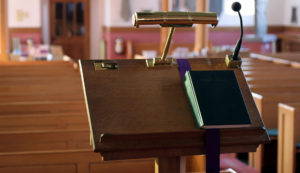
“A modern wooden church pulpit with microphone, brass lamp and closed bible.This file has been updated and replaced after its original upload as there was a problem with a square around the microphone which has now been resolved.A similar new image from the same location is now also available in a larger size:”
In American society, each of us have a role to play in creating a more perfect union. Our churches play a significant a role. In my opinion, the church should be leading the charge in advocating for policies that reflect God’s heart on every critical issue of our day; not only a select one or two. Our government and institutions react to what “We the People” demand. Clergy and Civil Rights leaders of the mid-20th century such as Dr. Martin Luther King Jr. and so many others demanded change and were able to accomplish it. As Reverend Dr. King once stated “The arc of the moral universe is long, but it bends toward justice.” Through enacting policies that address the critical needs of everyday people and “the least of these” we can create a more equitable and just society. We can create a society which I strongly believe reflects God’s Heart.
Sources:
https://www.census.gov/quickfacts/fact/table/US/PST045219
https://www.bop.gov/about/statistics/statistics_inmate_race.jsp
 As I’msitting in my little home office, it can be a challenge to understand that the world is much bigger than where I live in Kennesaw, Georgia. Or even the country that I’m proud to call home America, the same country that my father Moses Mwaura migrated to. Yet God calls for us to not only recognize that we’re part of a world representing over seven billion people, but at the same time to love the world. In fact, I would even venture to say that Isaiah 37:16 makes it clear that God made and sees the entire world, which is unlike me. God doesn’t see just one part of the world which is why as Christ Followers we should be praying for our world daily.
As I’msitting in my little home office, it can be a challenge to understand that the world is much bigger than where I live in Kennesaw, Georgia. Or even the country that I’m proud to call home America, the same country that my father Moses Mwaura migrated to. Yet God calls for us to not only recognize that we’re part of a world representing over seven billion people, but at the same time to love the world. In fact, I would even venture to say that Isaiah 37:16 makes it clear that God made and sees the entire world, which is unlike me. God doesn’t see just one part of the world which is why as Christ Followers we should be praying for our world daily. Recently on a rare Thursday Evening when many people were done working for the day, I had the privilege of spending a few minutes with United States Ambassador to the United Nations, Linda Thomas Greenfield. During my amazing time with her I learned so much about our world and the reasons that we should see ourselves not only as citizens of America but worldwide citizens. We have been placed here by a God who made and oversees the world. He desires for us to do our part, which in part is praying for the world around us.
Recently on a rare Thursday Evening when many people were done working for the day, I had the privilege of spending a few minutes with United States Ambassador to the United Nations, Linda Thomas Greenfield. During my amazing time with her I learned so much about our world and the reasons that we should see ourselves not only as citizens of America but worldwide citizens. We have been placed here by a God who made and oversees the world. He desires for us to do our part, which in part is praying for the world around us.
 As citizens of the world my prayer is that when people see us as American Citizens and followers of Jesus, that we are making them proud. We have been given a mandate by God to not only go into all the world, but also tackle issues that the world may be ignoring like climate change. The Ambassador is clear that climate change issues are not only affecting the us globally but also right here in America. To truly see the needs that are around us, we must people that love and recognize the needs around us. The United Nations is in New York City and is known as “The People’s House.” Ambassador Greenfield says, “It’s the peoples house, so anybody can come”. I will be taking her up on that offer because I believe that we are not only called to love our world, but we are also called to participate and engage with the world as world citizens. God doesn’t just love America, but He loves the entire world and there is so much work to be done. It is going to take all of us to pull off the task that He has called for us to do: bringing heaven to earth so that all may experience the kingdom of God.
As citizens of the world my prayer is that when people see us as American Citizens and followers of Jesus, that we are making them proud. We have been given a mandate by God to not only go into all the world, but also tackle issues that the world may be ignoring like climate change. The Ambassador is clear that climate change issues are not only affecting the us globally but also right here in America. To truly see the needs that are around us, we must people that love and recognize the needs around us. The United Nations is in New York City and is known as “The People’s House.” Ambassador Greenfield says, “It’s the peoples house, so anybody can come”. I will be taking her up on that offer because I believe that we are not only called to love our world, but we are also called to participate and engage with the world as world citizens. God doesn’t just love America, but He loves the entire world and there is so much work to be done. It is going to take all of us to pull off the task that He has called for us to do: bringing heaven to earth so that all may experience the kingdom of God.








 How can policy help us create a society that reflects God’s heart? This is a critical question that Christians from all backgrounds and denominations should be asking ourselves today. To begin answering this question, I’d like to first take a look at a passage from the book of Matthew 25: 34-40. Here Jesus, as usual, says something profound and which applies to our society today. He says this, “Then the King will say to those on His right hand, ‘Come you blessed of My Father, inherit the kingdom prepared for you from the creation of the world. For I was hungry, and you fed me. I was thirsty, and you gave me a drink. I was a stranger and you invited me into your home. I was naked, and you gave me clothing. I was sick, and you cared for me. I was in prison, and you visited me.’ Then these righteous ones will reply, ‘Lord when did we ever see you hungry and feed you? Or thirsty and give you something to drink? Or a stranger and show you hospitality? Or naked and give you clothing? When did we ever see you sick or in prison and visit you?’ And the King will say, ‘I tell you the truth, when you did it to one of the least of these my brothers and sisters, you were doing it to me!’” In this passage, Jesus sets the framework for the justice work that needs to be done within our society. In meeting the needs of “the least of these” we are serving God and people by committing true acts of justice.
How can policy help us create a society that reflects God’s heart? This is a critical question that Christians from all backgrounds and denominations should be asking ourselves today. To begin answering this question, I’d like to first take a look at a passage from the book of Matthew 25: 34-40. Here Jesus, as usual, says something profound and which applies to our society today. He says this, “Then the King will say to those on His right hand, ‘Come you blessed of My Father, inherit the kingdom prepared for you from the creation of the world. For I was hungry, and you fed me. I was thirsty, and you gave me a drink. I was a stranger and you invited me into your home. I was naked, and you gave me clothing. I was sick, and you cared for me. I was in prison, and you visited me.’ Then these righteous ones will reply, ‘Lord when did we ever see you hungry and feed you? Or thirsty and give you something to drink? Or a stranger and show you hospitality? Or naked and give you clothing? When did we ever see you sick or in prison and visit you?’ And the King will say, ‘I tell you the truth, when you did it to one of the least of these my brothers and sisters, you were doing it to me!’” In this passage, Jesus sets the framework for the justice work that needs to be done within our society. In meeting the needs of “the least of these” we are serving God and people by committing true acts of justice. When Jesus says in Matthew 25, “I was hungry and you fed me” it should make us think about nutrition policy and how we can eradicate food deserts within our communities. Through policies and programs that will encourage agricultural growth and ensure that disadvantaged communities receive fresh foods, we could feed entire neighborhoods of children and families. We should seek funding and partners in building grocery stores that stock fresh produce in the heart of urban areas. When Jesus says “I was a stranger and you invited me into your home.” It should jolt our minds towards equitable housing policy and how we can provide stable housing for those who are battling homelessness. When Jesus says “I was sick, and you cared for me.” It makes me think of how we can expand access to affordable healthcare to more individuals and families. When He says “I was in prison, and you visited me” it brings to mind potential second-chance policies and programs which can be utilized to rehabilitate and integrate prisoners back into society in a productive way.
When Jesus says in Matthew 25, “I was hungry and you fed me” it should make us think about nutrition policy and how we can eradicate food deserts within our communities. Through policies and programs that will encourage agricultural growth and ensure that disadvantaged communities receive fresh foods, we could feed entire neighborhoods of children and families. We should seek funding and partners in building grocery stores that stock fresh produce in the heart of urban areas. When Jesus says “I was a stranger and you invited me into your home.” It should jolt our minds towards equitable housing policy and how we can provide stable housing for those who are battling homelessness. When Jesus says “I was sick, and you cared for me.” It makes me think of how we can expand access to affordable healthcare to more individuals and families. When He says “I was in prison, and you visited me” it brings to mind potential second-chance policies and programs which can be utilized to rehabilitate and integrate prisoners back into society in a productive way. Let’s take a further look at our Justice System. Over the past few decades policies enacted at multiple levels of government have created systemic injustices such as the School-to-Prison Pipeline and Mass Incarceration, just to name two. The War on Drugs in the 1980’s followed by the “tough on crime” policies and rhetoric from politicians on both sides of the political aisle resulted in a disproportionate amount of black and brown people populating our prison systems. According to the Federal Bureau of Prisons, as of July 2021, 38.2% of inmates today are Black. Why is that number disproportionate? Because the latest Census data place the total number of African Americans in the United States at just over 13%. These statistics should alarm anyone who wishes to see the fair and equal treatment of people in our society. The Crack Epidemic devastated Urban America. Instead of providing rehabilitation, mental health and addiction services the government decided to lock people up and give them a mandatory minimum sentence. In most cases if not all, individuals of color would receive harsher penalties than their white counterparts for the same offense. This was a clear sign of institutionalized racism and implicit bias running rampant within our justice system.
Let’s take a further look at our Justice System. Over the past few decades policies enacted at multiple levels of government have created systemic injustices such as the School-to-Prison Pipeline and Mass Incarceration, just to name two. The War on Drugs in the 1980’s followed by the “tough on crime” policies and rhetoric from politicians on both sides of the political aisle resulted in a disproportionate amount of black and brown people populating our prison systems. According to the Federal Bureau of Prisons, as of July 2021, 38.2% of inmates today are Black. Why is that number disproportionate? Because the latest Census data place the total number of African Americans in the United States at just over 13%. These statistics should alarm anyone who wishes to see the fair and equal treatment of people in our society. The Crack Epidemic devastated Urban America. Instead of providing rehabilitation, mental health and addiction services the government decided to lock people up and give them a mandatory minimum sentence. In most cases if not all, individuals of color would receive harsher penalties than their white counterparts for the same offense. This was a clear sign of institutionalized racism and implicit bias running rampant within our justice system.